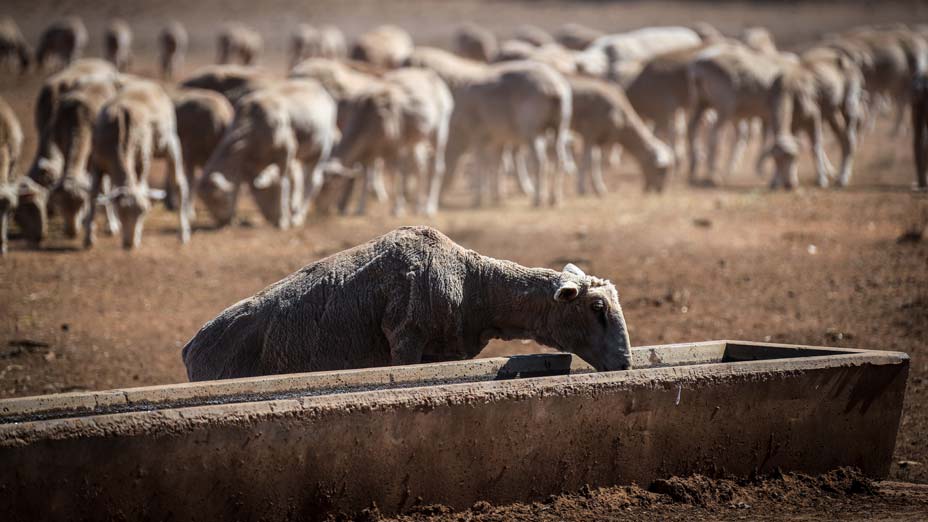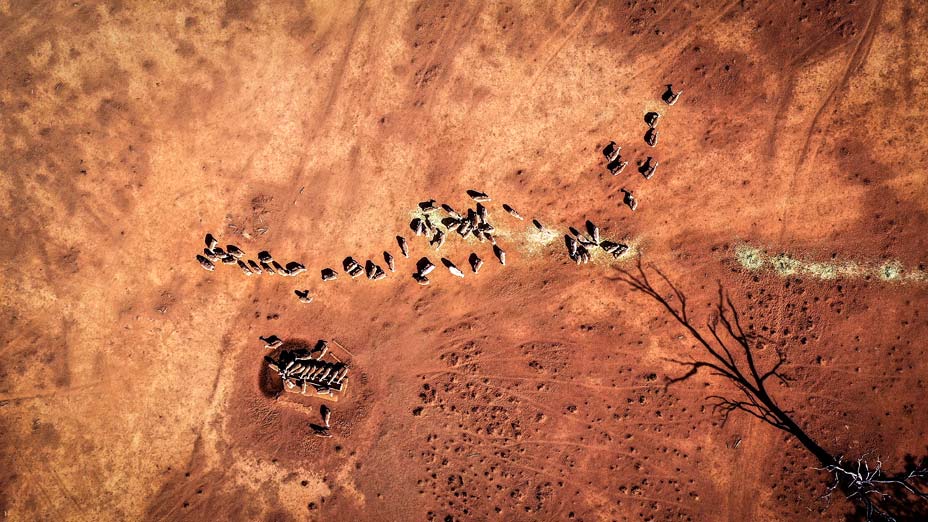A guide to drought relief packages for struggling farmers
By Susan Hely
Confused about what is available under drought relief by the federal and state governments? You are not alone.
More than 60% of eligible farmers haven't taken advantage of the federal government's latest drought relief measure known as Farm Household Allowance (FHA).
Some 30,000 farmers can tap into $13,000 immediate relief payment for a family and up to $7500 for individuals, according to the government. But according to the Department of Agriculture some 22,500 are yet to claim the allowances that were made more accessible on October 17 this year.
For more information see agriculture.gov.au/fha or call the Farmer Assistance Hotline on 132 316.
Also there is a $3000 financial assistance package to eligible farming households who are facing hardship because of the drought. This includes local businesses as well.
The new measure called Drought Community Support Initiative - Round 2 was announced on September 27, 2019, for farmers who live in a qualifying local government area.

It can be accessed through the Salvation Army and St Vincent de Paul Society to cover groceries, car maintenance, energy and utility bills, health and medical expenses.
To find out more visit salvationarmy.org,au/drought or call on 1300 551 030. Or apply at Vinnies online at vinnies.org.au or call 13 18 12.
Free counselling services are available for farmers, fishers, forest growers, harvesters and small-related businesses in financial hardship.
The confidential counselling comes from the Rural Financial Counselling Services. It is designed to help people deal with their issues and identify their options. For more information call 1800 686 175 or visit agriculture.gov.au/rfcs.
Other drought relief initiatives announced are for local councils, communities, schools, and childcare in drought-affected areas.
Councils can tap into the Drought Communities Program to receive up to $1 million while communities can apply for grants under the Tackling Tough Times Together for up to $150,000.
Rather than offering cash payments, state governments are offering loans, grants and subsidies to farmers in drought regions.
Some loans have recently been made more generous by waiving interest payments such as the NSW Drought Assistance Fund, which is a $50,000 interest free loan to transport stock, fodder and water.
The loan term is seven years with no repayments due in the first two years..

In Queensland farmers can be eligible for freight subsidies for transporting fodder, water, installing water infrastructure up to $20,000 initially but this can be extended to $50,000.
For more information and to apply for loans visit ric.gov.au or call 1800 875 675. Check with your state government.
The Australian Taxation Office is providing tailored assistance to drought-affected communities to help people manage their tax affairs and obligations. Call 1800 806 218 or visit ato.gov.au/drought for more information.
Also many banks say they are offering assistance to their drought-affected customers, including deferral of loan payments, waiving of fees and loan restructuring. Contact your bank to seek advice and to discuss options.
Get stories like this in our newsletters.



